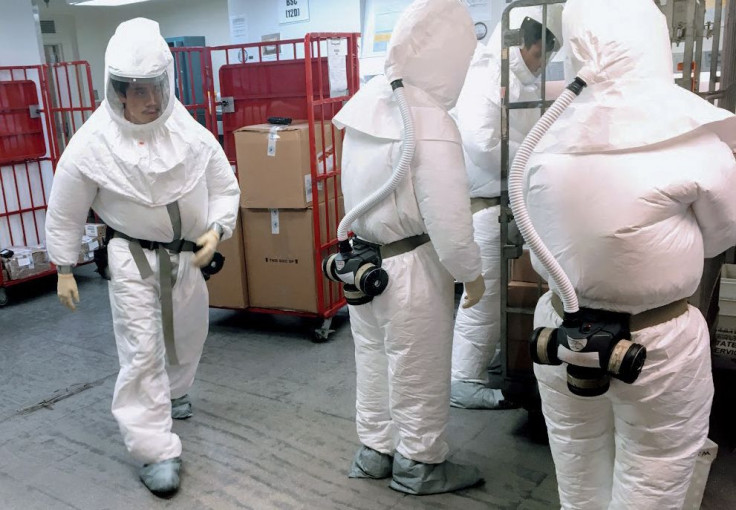What Is Ricin? Susan Collins Latest Politician Targeted With Biological Toxic Substance

A suspicious envelope mailed to Sen. Susan Collins’ (R-ME) residence Monday prompted the Hazardous Material Response Team and the FBI to respond to her house.
The envelope, which was received by Collins’ husband, Thomas Daffron, comprised a letter bearing the note saying the package contained the toxic substance Ricin. Collins was on her way home from Washington at the time, the Hill reported.
The sender’s name was not specified on the envelope and it was unclear why Collins might have been targeted. However, her spokeswoman, Annie Clark, insinuated through a statement it might be an extreme reaction to her vote to confirm Brett Kavanaugh to the Supreme Court, after which she had been receiving criticisms and threats from her followers.
“Today’s incident is the latest in a series of threats against Senator Collins, her loved ones, and her staff,” Clark said.
Collins and her husband were allowed to stay in their house after the FBI determined in their preliminary report the letter and the contents posed no threat to them or the public.
“We are also truly appreciative of the many well wishes that we received today,” Collins and Daffron said in a joint statement. “Our friends and neighbors have been incredible kind and have even offered to open their homes to us. We feel blessed to live in such a supportive community.”
What is Ricin?
According to the Centers for Disease Control and Prevention, “Ricin is a poison found naturally in castor beans” and it can be found “in the form of a powder, a mist, or a pellet, or it can be dissolved in water or weak acid.”
It has been characterized as "one of the most toxic biological agents known."
While it is highly unlikely a person will be exposed to Ricin accidentally, a partially purified form of the substance can be made into “a terrorist or warfare agent.”
It is not contagious but can spread if a person comes in contact with an individual who has Ricin on their skin or clothes.
Some of the initial symptoms of Ricin poisoning include respiratory problems, fever, cough, nausea, and tightness in the chest, heavy sweating and fluid in lungs. Eventually low blood pressure and respiratory failure may cause death.
Ricin Used To Threaten Politicians
The attack on Collins was by no means novel, as the substance has been used plenty times in the past to threaten multiple presidents of the United States.
Four suspicious packages were sent to the White House, the Pentagon campus and Sen. Ted Cruz's campaign headquarters in Houston, Texas, over Oct. 1 and 2, NBC Washington reported. While the Secret Service announced the package addressed to the president never made it inside the White House, the two packages addressed to Defense Secretary Jim Mattis and Navy’s top officer, Adm. John Richardson contained Ricin. Also, two people from Cruz’s office were hospitalized after being exposed to a “white powdery substance.”

In 2014, J. Everett Dutschke, 42, was sentenced to 25 years in prison for sending Ricin-laced letters to former President Barack Obama, along with a senator and a judge in 2013, NPR reported.
Similarly, a letter addressed to former President George W. Bush had a vial of Ricin accompanying it back in 2004. The letter and its contents were intercepted in the sorting office before it could reach the White House, Evening Standard reported.
© Copyright IBTimes 2025. All rights reserved.






















